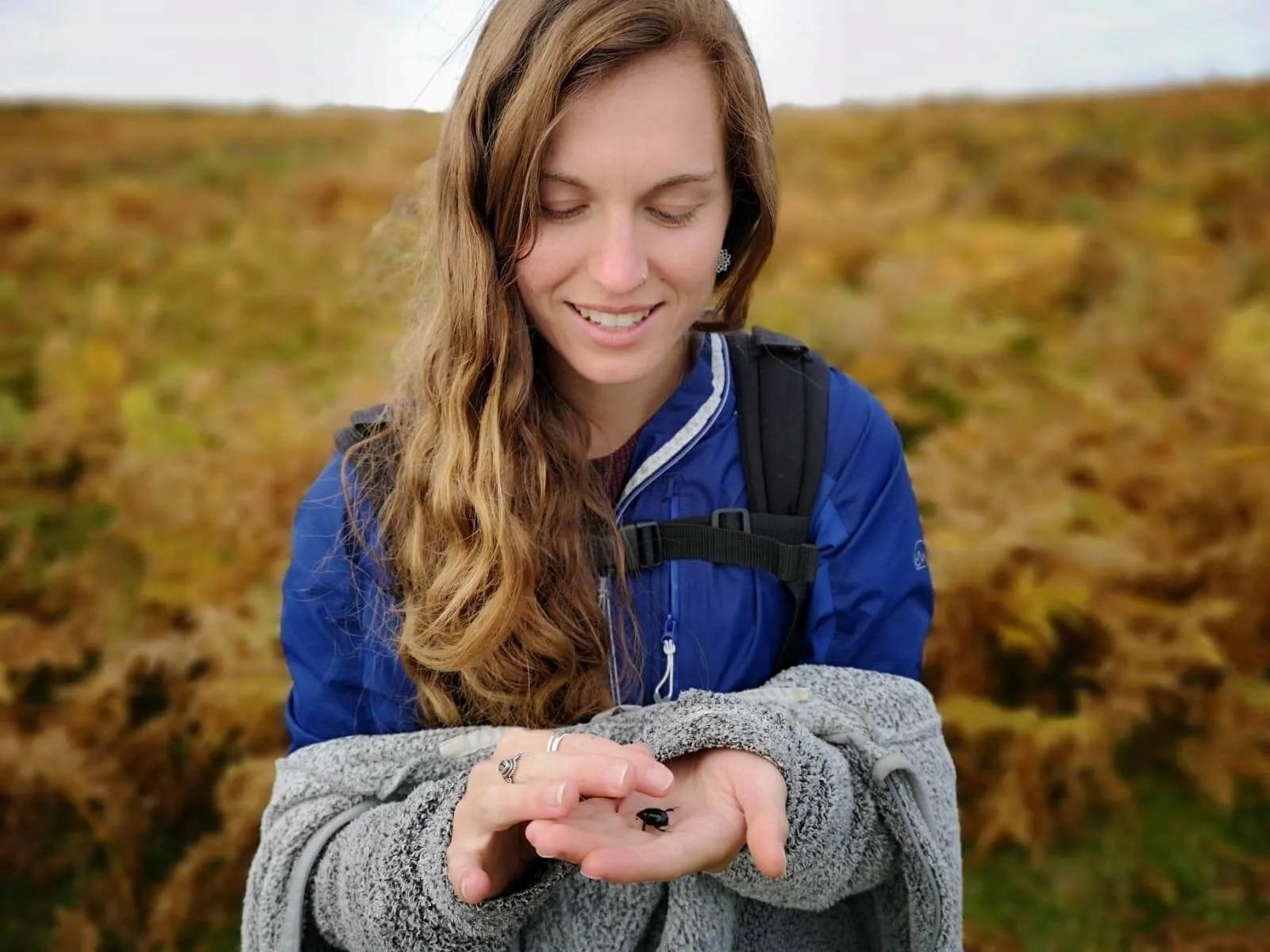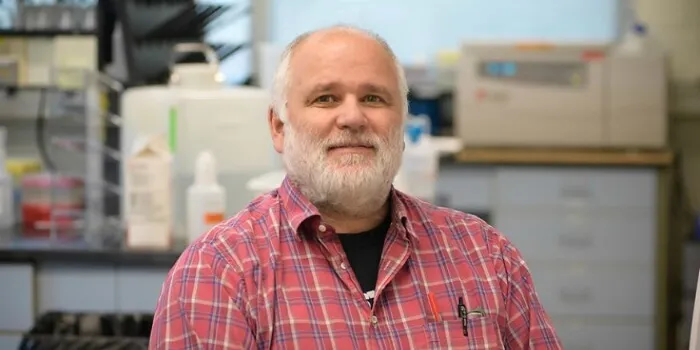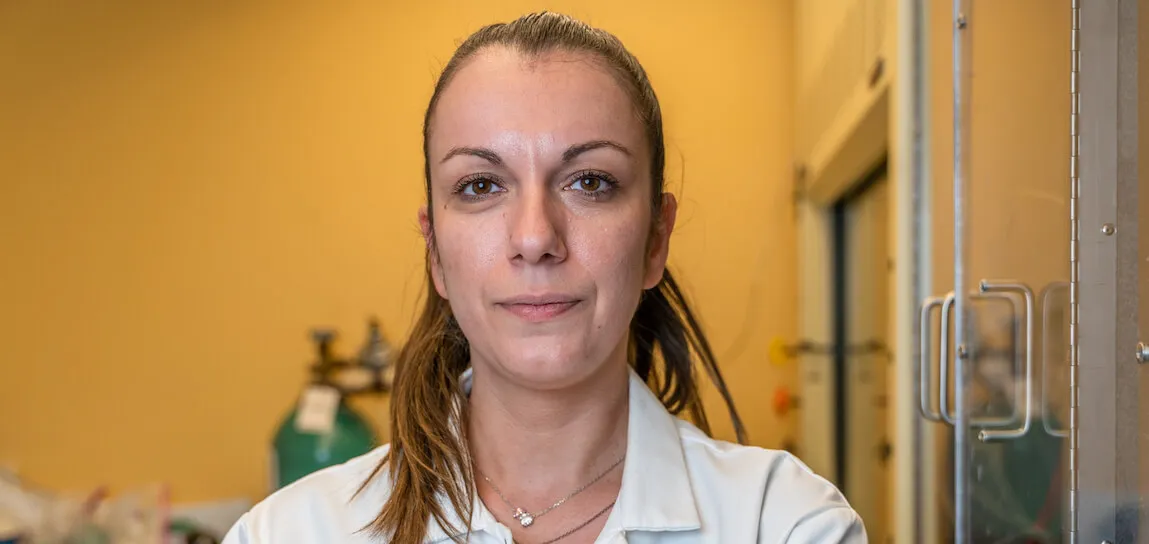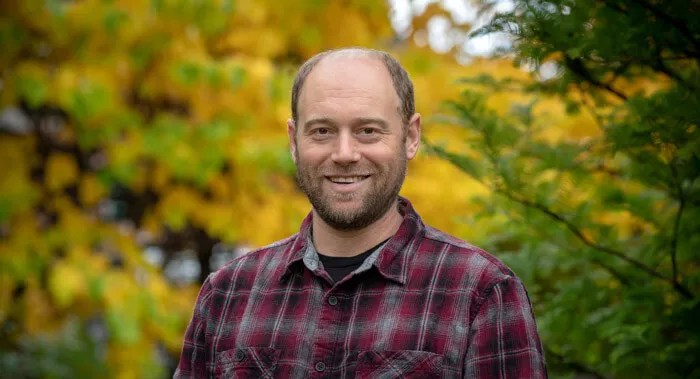The Food Systems Research Center (FSRC) is excited to feature Bryony Sands as our Researcher of the Month. Bryony is a postdoctoral fellow working on FSRC-funded work. Learn more about Bryony below! If you have a nomination for the FSRC Researcher of the Month, please contact us.
1. What current food systems research are you conducting?
This year I am excited to be working on a project focusing on forage-based dairy production with my advisor Professor Heather Darby. Homegrown forages are a critical aspect of dairy systems in the Northeast and have multiple impacts on farm performance in terms of animal productivity, economic sustainability, and environmental impact. Our objectives for this research are to investigate forages that can optimize outcomes for primary (forage) and secondary (animal) productivity whilst achieving environmental co-benefits. An example of this is using high tannin forages which are thought to contribute to reduced methane emissions and resilience to gastrointestinal parasites in cattle. We are currently growing research plots at Borderview Farm in Alburgh with high tannin forages such as birdsfoot trefoil, sainfoin, small burnet, and chicory, and are investigating tannin content in relation to nutritional quality and performance.
Another aspect of the research involves working with pasture-based dairy farmers in Vermont to measure below ground invertebrate diversity and soil carbon stocks under different forage management. Last summer in 2022 I had the pleasure of getting to know Vermont by working with 29 dairy farmers across the state, to study pest and parasite management strategies in relation to beneficial insect biodiversity and soil health outcomes on grazed pastures. We also carried out the first survey of Vermont dung beetles and found 18 different species! I am excited to continue working with many of these farmers this summer as we expand our sampling efforts to investigate soil microinvertebrate diversity and soil carbon stocks.
2. What got you interested in food systems research?
I became passionate about food systems research through learning about insects! During my undergraduate degree at the University of Bristol in the UK I learnt about beneficial insects in pasture ecosystems from my mentor Professor Richard Wall. I was particularly fascinated by dung beetles and their essential role in recycling nutrients and organic matter from livestock manure back into the soil. I realized how complex our food system is, and how it depends on all sorts of interconnected relationships between insects, plants, soils, bacteria, fungi, livestock, and people. It also made me realize how fragile these systems could be if we did not take care of each of these parts - even down to the creatures that live in the dung!
3. How is your FSRC-funded research impacting Vermonters?
Our goal is that the outcomes of the research will be helpful and informative for dairy farmers across the state and provide options for improving sustainable intensification and economic sustainability of forage-based dairy systems here. On a personal level I enjoy the opportunity to speak with farmers about invertebrate diversity on their pastures and the management practices they are using to support healthy pasture ecosystems.
4. Where do you see the role of your field in expanding research on food systems at UVM and beyond?
I think previously the scientific approach has been to assess separate components of food production and consumption, seeking to improve the efficiency of isolated elements while assuming that this will improve the entire system. We are slowly learning that this is not the reality, and that component parts of our food system (be they social, environmental, economic, or nonmaterial) do not operate in isolation – just as component parts of ecosystems are inextricably connected and interrelated. What we do a single element impacts other processes and outcomes in ways that we are only now beginning to understand. A holistic approach is therefore essential. I hope that my field of research can contribute to a changing mindset towards food production where optimal outcomes mean a careful balance between economic productivity, human and animal health and wellbeing, and environmental restoration, while improving farmer livelihoods.
5. What is something about you people would be surprised to learn?
I enjoy martial arts and have spent time learning Krav Maga in the UK and Taekwondo in Vermont.
6. What’s your favorite thing about living in Vermont?
The people. I moved to Vermont from the UK in October 2021 with my 4-year-old daughter Ayana, and it was the first time I had ever been to America. It was daunting moving away from our family and friends and setting up home in a new country, especially amidst the uncertainty of the pandemic. I was really blown away by the kindness of the people here and the help and support we were given from colleagues and neighbors. I remember that challenging time with gratitude.
7. What TV show, band/artist, podcast, video game, book, and/or anything are you most obsessed with right now?
What I am most obsessed with right now are my goats…I was gifted three goats in March this year and now we have twelve! We are enjoying rotating them through the woodland where we live and learning all about making cheese with their milk.
About the Food Systems Research Center
The Food Systems Research Center (FSRC) at the University of Vermont uncovers solutions to society’s most pressing issues through the lens of our food system to improve human health, well-being and livelihoods, and environmental sustainability. The Research Center is a partnership between UVM and USDA and focuses on the Northeast U.S. but considers the relationship of food systems across scales from local to global. With over 100 funded faculty, staff, and student collaborators in Vermont and across the world, the Research Center conducts interdisciplinary and transdisciplinary research to study food systems: the networks of people, institutions, physical infrastructure, and natural resources through which food is grown, processed, distributed, sold, prepared, and eaten.



